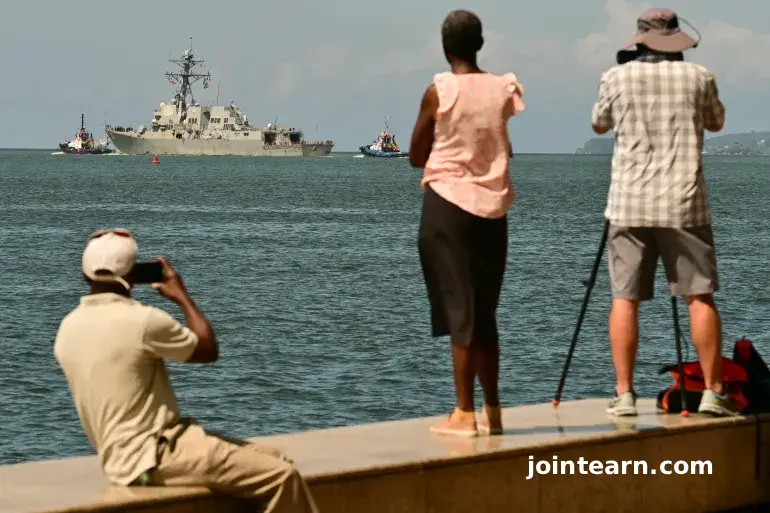
Washington/Port of Spain – November 1, 2025
US President Donald Trump has stated that the United States is not planning military strikes within Venezuela, a remark that appears to contradict his earlier statements this month amid a significant US military presence in the Caribbean.
The announcement comes as fighter jets, warships, and thousands of troops have been deployed to the region, including the aircraft carrier USS Gerald R Ford, en route toward the Venezuelan coast.
“No,” Trump said on board Air Force One when asked if strikes inside Venezuela were being considered. US Secretary of State Marco Rubio reinforced the message, calling recent media reports on potential strikes “fake stories.”
Earlier Statements on Venezuela
Trump had previously made remarks suggesting military action could target drug traffickers in Venezuela without a formal declaration of war.
“I think we’re just going to kill people that are bringing drugs into our country… Now they [drugs] are coming in by land… the land is going to be next,” he said last week.
Since September, the US military has conducted multiple strikes on vessels in the Caribbean and eastern Pacific, reportedly killing at least 62 people and destroying 14 boats and one semi-submersible, claiming the targets were involved in drug smuggling. Evidence supporting these claims has not been publicly disclosed.
International and Domestic Reactions
The United Nations High Commissioner for Human Rights, Volker Turk, condemned the strikes as “unacceptable,” highlighting the human cost of targeting vessels at sea.
“The US must halt such attacks and take all measures necessary to prevent extrajudicial killings aboard these boats,” Turk said.
Public opinion in the US also shows growing skepticism. A YouGov poll released Friday indicated that just 30% of Americans approve of the naval deployment near Venezuela, compared with 36% in September.
Meanwhile, Venezuelan President Nicolas Maduro denounced the US escalation, accusing Washington of fabricating “a new eternal war” and disputing claims that Venezuela produces cocaine.
Regional Tensions
Trinidad and Tobago, which hosts US naval operations, placed its military on high alert in response to the deployment. All personnel were recalled to their bases, and leave was restricted. This alert followed Venezuela’s suspension of a gas deal with Trinidad and Tobago, citing the presence of the USS Gravely.
US Senate Seeks Accountability
Leaders of the Senate Armed Services Committee, Republican Roger Wicker and Democrat Jack Reed, have expressed concern over the legality of the strikes, noting that requests for documentation from the Department of Defense have gone unanswered.
“To date, the requested documents have not been provided,” the senators said in a joint statement, emphasizing bipartisan interest in clarity over the US “anti-drug” strategy.
The situation underscores ongoing tension in the Caribbean, with the US military presence, conflicting statements from leadership, and regional reactions fueling uncertainty about future operations.


Leave a Reply